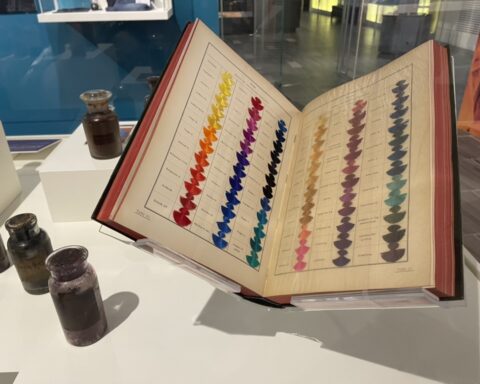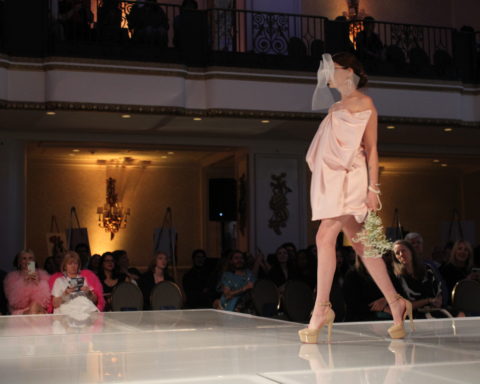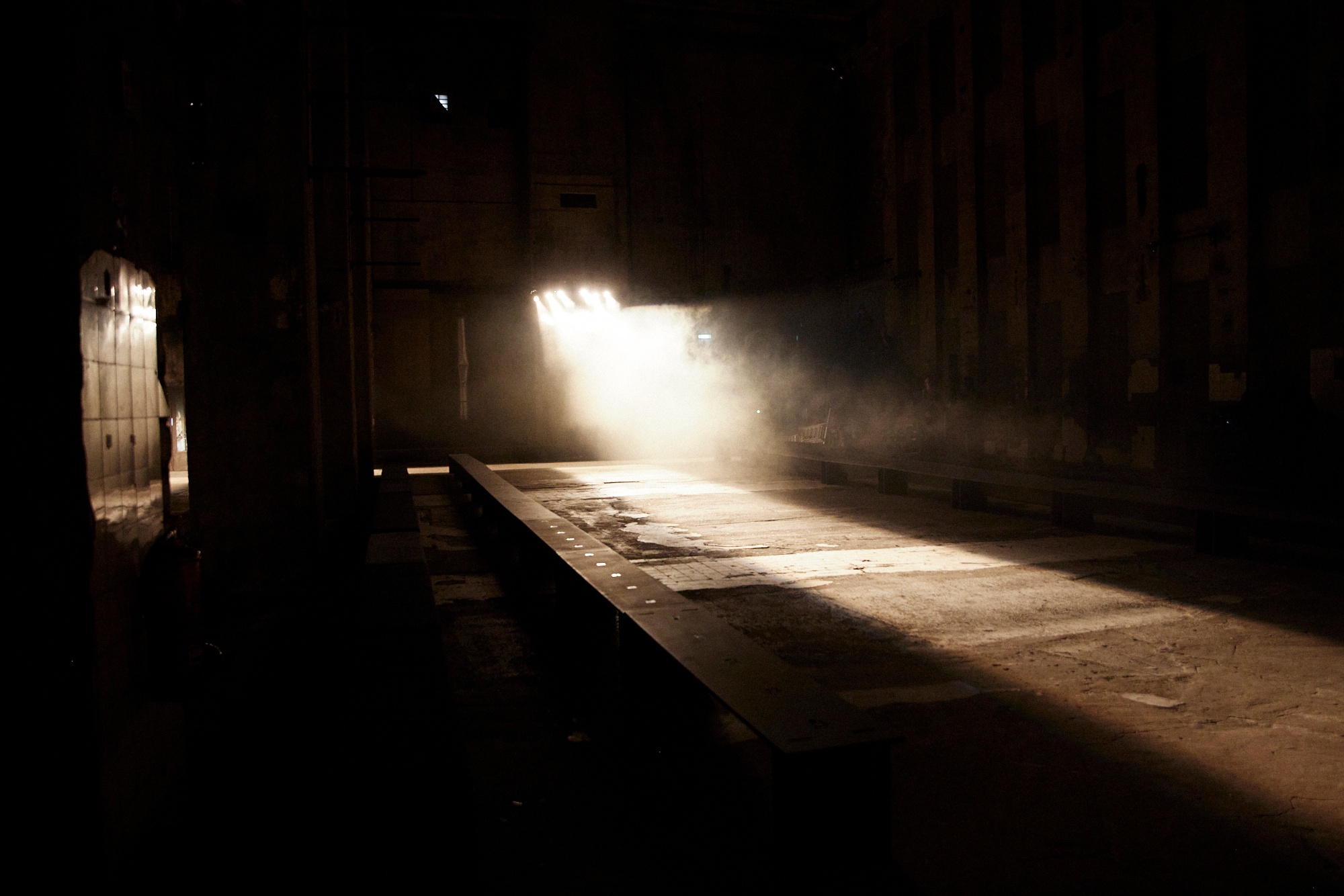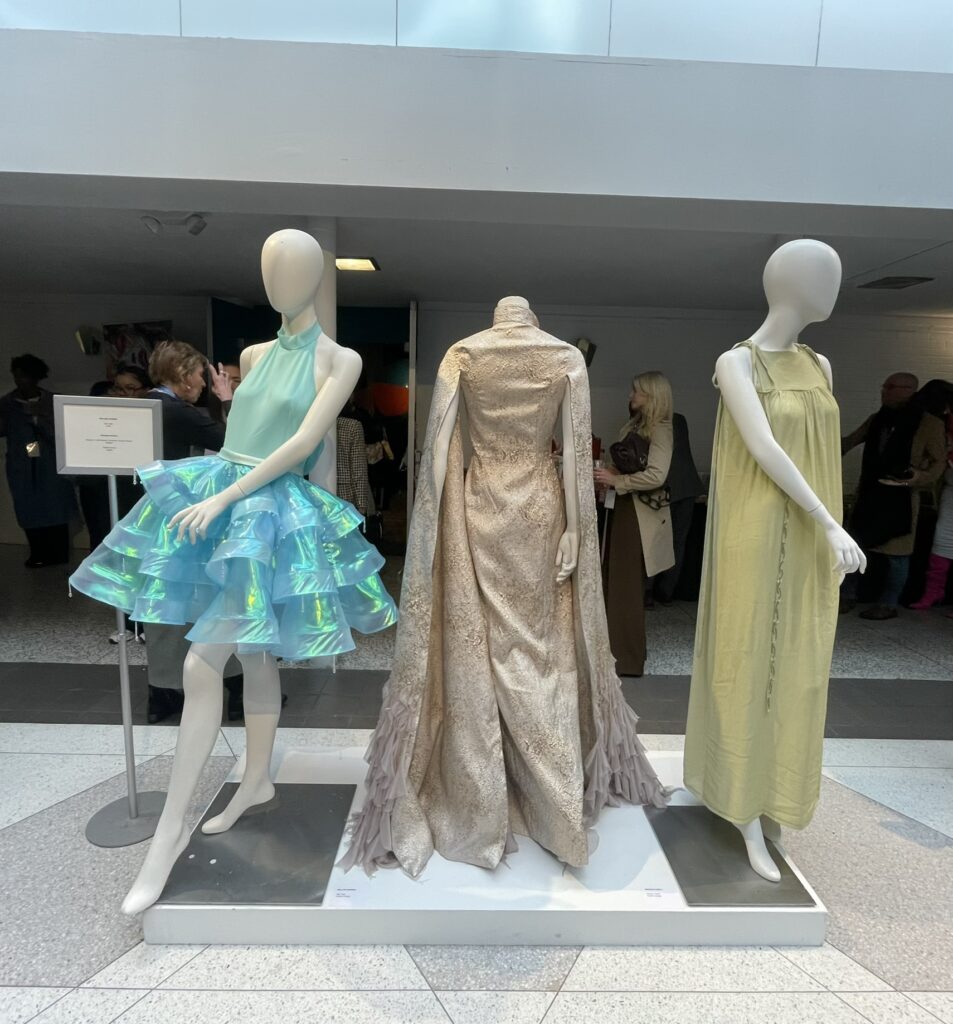
FashCon Philly 2025, presented by the Philadelphia Fashion Incubator, wrapped up its inaugural event on Friday at the Moore College of Art & Design.
The significance of choosing to hold this event at Moore can’t be overstated to the Philadelphia creative community, with Moore being the last arts college left in the city after the abrupt closure of University of the Arts and the the ceasing of the Pennsylvania Academy of the Fine Arts (PAFA) degree programs. Though we still have Temple’s Tyler School of Art and Architecture, Drexel’s Westphal College of Media Arts & Design, Jefferson’s Kanbar College of Design, Engineering & Commerce, and Penn’s College of Arts and Sciences, the Moore College of Art & Design is the last arts college standing here.
Philadelphia has historically been a city with a depth of fashion talent, but it has not always provided streamlined ways for members of its fashion community to stay connected and collaborate. This impacts potential career prospects for those who may want to stay in the city and work in the sector.
FashCon Philly’s importance, then, is underlined.
Attendees received seven panels on topics from A.I. and branding to collaboration and manufacturing.
While the conversations from the panels bore useful fruit, for the most part, there were moments where listeners received the type of advice that you would expect from conferences and panel discussions. If you have attended more than about three of those, you are likely familiar with what I mean.
Zero in on who your customer is.
Successful companies have a team.
Relationships are important.
For a paid conference, attendees need knowledge that digs deeper.
Which is why moments where that more insightful advice was given were welcomed.
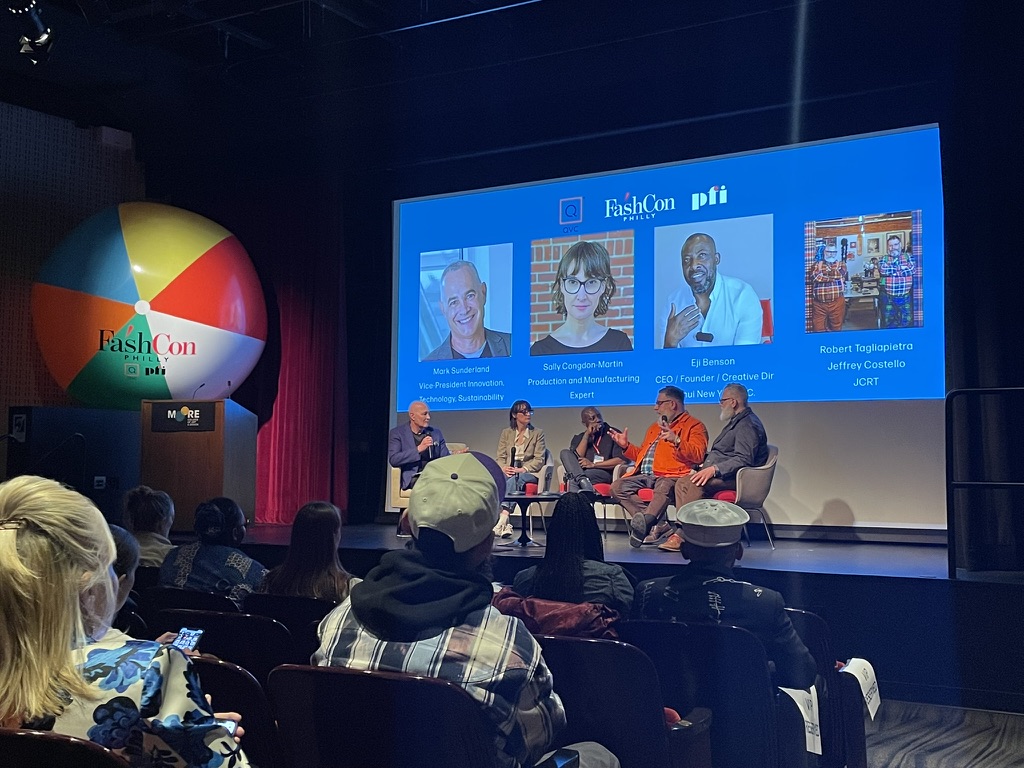
Sally Congdon-Martin of American clothing brand Buck Mason spoke about how smart manufacturing is sustainable, with one of those ways being its ability to use cut-to-order techniques.
Smart manufacturing is a topic that many aren’t familiar with, and with so much talk in fashion about the necessity of becoming more familiar with every aspect of the supply chain – and making sure that supply chains are as environmentally sound as possible, understanding the benefits of smart manufacturing was perhaps one of the highlights of FashCon.
Another spot-on point made over the course of the day – this time by Kitted AI founder Leanne Luce – was that you can’t check AI to see if it is creating correctly if you don’t understand how to create your product by hand. The importance of this realization could not be more relevant. Many might be tempted to lean too heavily on the power and features of artificial intelligence as the technology becomes more prevalent in the fashion industry. AI can be a useful tool, but fashion creatives still have to know how to compose drawings and design clothing manually, lest AI choose to throw out unintelligible garbage without you knowing if it is indeed faithful to your vision.
Elsewhere during the conference, four lawyers appeared on stage to give attendees tips on how to handle situations ranging from protecting trade secrets with nondisclosure agreements (NDAs) to making sure that your public statements are legally sound. (Yes, the lawyers all gave the disclosure that they were not giving attendees legal advice) Creatives, along with most anyone who owns a business, often find legal waters to be intimidating. Having lawyers come up for a panel for a bunch of fashion creatives (who would much rather design or write than have to worry about business and law, by the way) was a brilliant move.
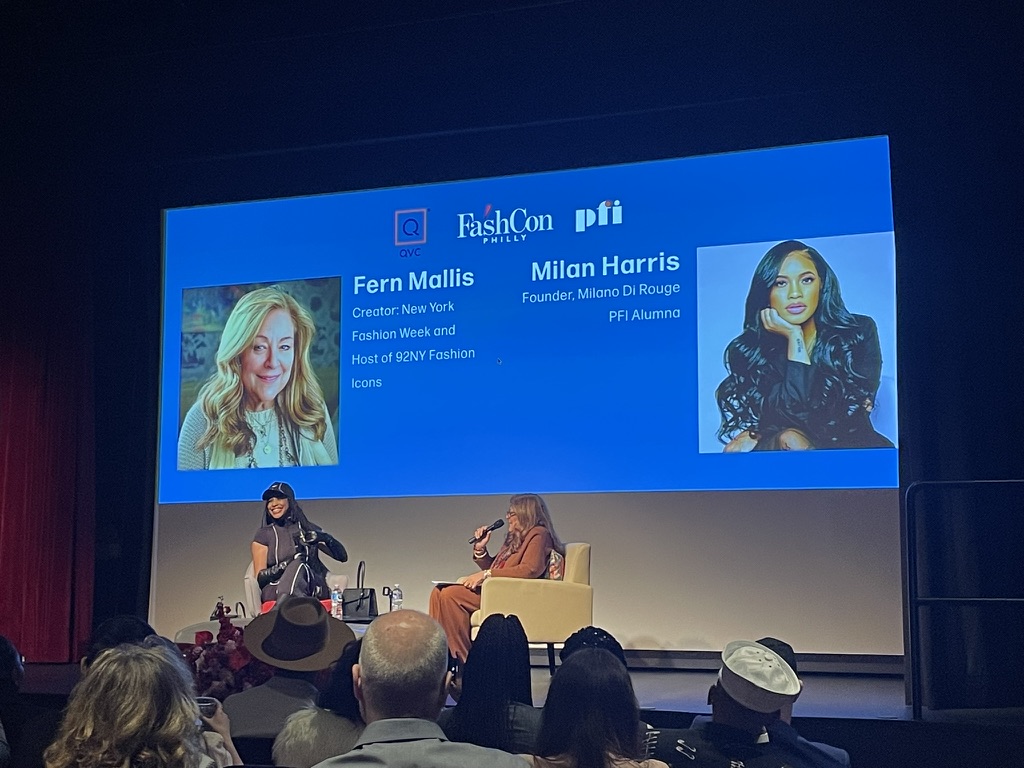
Some of the stronger overall points of the panels were when panelists began telling their personal stories and relating that directly to how they have chosen to run their respective businesses and how they have gotten to where they are now. Milan Harris, founder of luxury streetwear brand Milano Di Rouge, was exceptional at doing this. The Philadelphia native’s story was a powerful one, and one that many in the audience surely related to on a personal level. Milan’s stirring story was enhanced by the interviewing capabilities of the celebrated Fern Mallis, host of 92NY Fashion Icons and a tireless advocate for the American fashion industry. Milan and Fern’s discussion was the stuff that conferences should be made of more often.
Two more pieces of advice that anyone hoping to be a fashion designer should take were both given by Joan Shepp owner Ellen Shepp:
- Work for someone else; you don’t have to be independent right away, and
- Picture your clothes walking down the street on real people. That can help you decide whether to be a ready-to-wear designer or a costume designer.
Hearing guidance like these two golden nuggets is a top reason why student designers should periodically leave their campuses and attend events in the real world – students need the perspectives of those who have been working in fashion for decades. Ellen has been in the industry for over four decades at a luxury concept store widely recognized as a top fashion destination in the country. To receive this type of advice from someone of her stature was itself worth the ticket price – even for non-students.
All things considered, FashCon Philly was a crucial step forward for the cohesion of Philadelphia’s fashion scene. Hopefully, it continues to exist as the years go on because the vibrancy of the city’s fashion jobs market could benefit immensely if it does.
To purchase a subscription to Manic Metallic’s website, click here. To subscribe to Manic Metallic’s Substack newsletter, click here.

